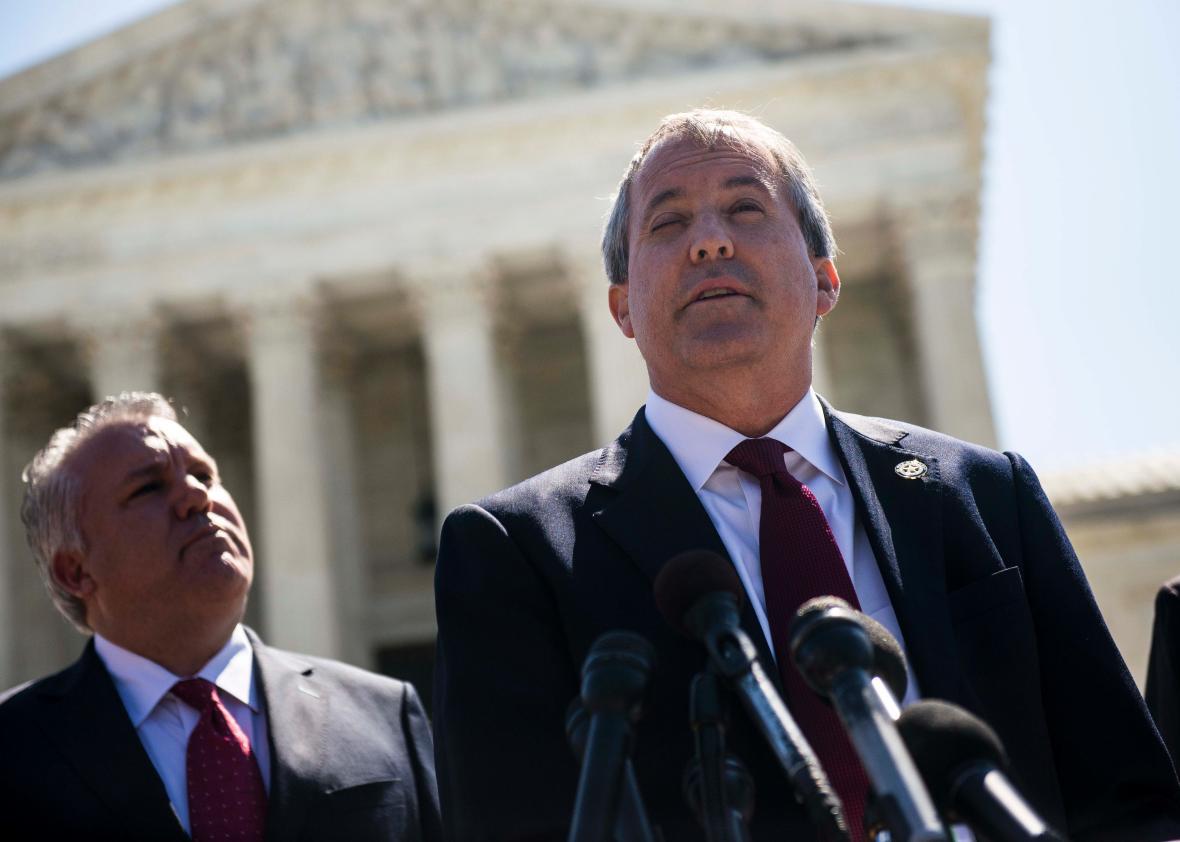Back in July, the U.S. Court of Appeals for the 5th Circuit ruled that Texas’ draconian new voter ID requirements are illegal under the federal Voting Rights Act because they discriminate against minorities. In accordance with that decision, U.S. District Judge Nelva Gonzales Ramos forbade the state from enforcing the blocked law or disenfranchising voters who lack ID.
But Texas quickly violated this court order by actively misleading voters about ID requirements in statements to the press and official voting materials. While Ramos ruled that voters could legally sign an affidavit swearing they could not reasonably obtain ID, Texas officials implied that they would criminally investigate “everyone who signs that form.” Ramos also ordered Texas to educate voters about their ability to vote without an ID if they cannot “reasonably obtain it.” Yet the state recast Ramos’ language, declaring in its educational materials that only voters who cannot obtain ID at all may sign the affidavit. As the Justice Department noted in a complaint, this “inaccurate” and “misleading information” suggests that voters who would face a heavy burden in obtaining an approved ID—but could still theoretically get one—must still present an ID to vote.
And then there are the outright lies. As voting rights expert Ari Berman has documented, some Texas election officials are simply deceiving voters and poll workers, informing them that photo ID is still required to cast a ballot:
In response, Ramos took the remarkable step on Tuesday of putting Texas under court supervision. The state is now required to “re-issue its press releases” and edit its educational materials to correctly reflect the court’s ruling, using language issued by the court itself. Ramos also required officials to provide the Justice Department and voting rights plaintiffs with “scripts and copy for documents and advertisements that have not yet been published for review and objection prior to publication.” As Cristian Farias notes at the Huffington Post, this order suggests that these parties will be able to object to duplicitous materials before they are distributed to voters. Texas, it seems, has so thoroughly flouted the court’s initial ruling that Ramos no longer trusts officials to represent the current state of the law correctly.
State Attorney General Ken Paxton reacted to the decision by announcing, through a spokesman, that it will appeal the 5th Circuit’s ruling this week to the Supreme Court, where it will lose.
